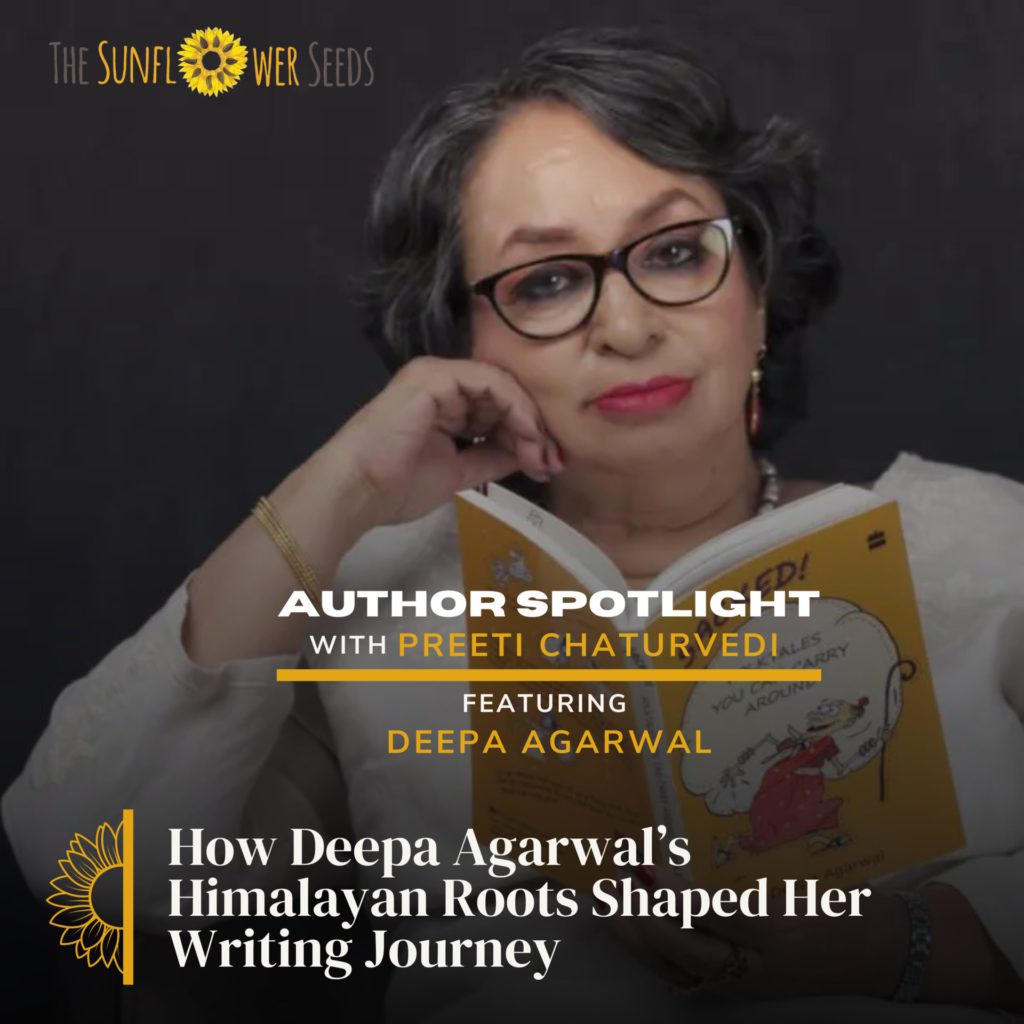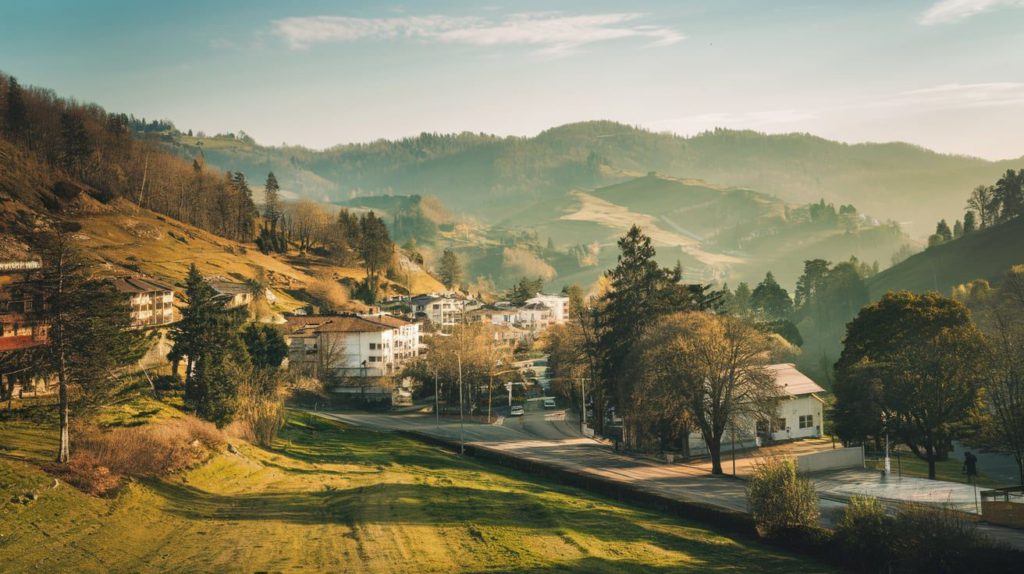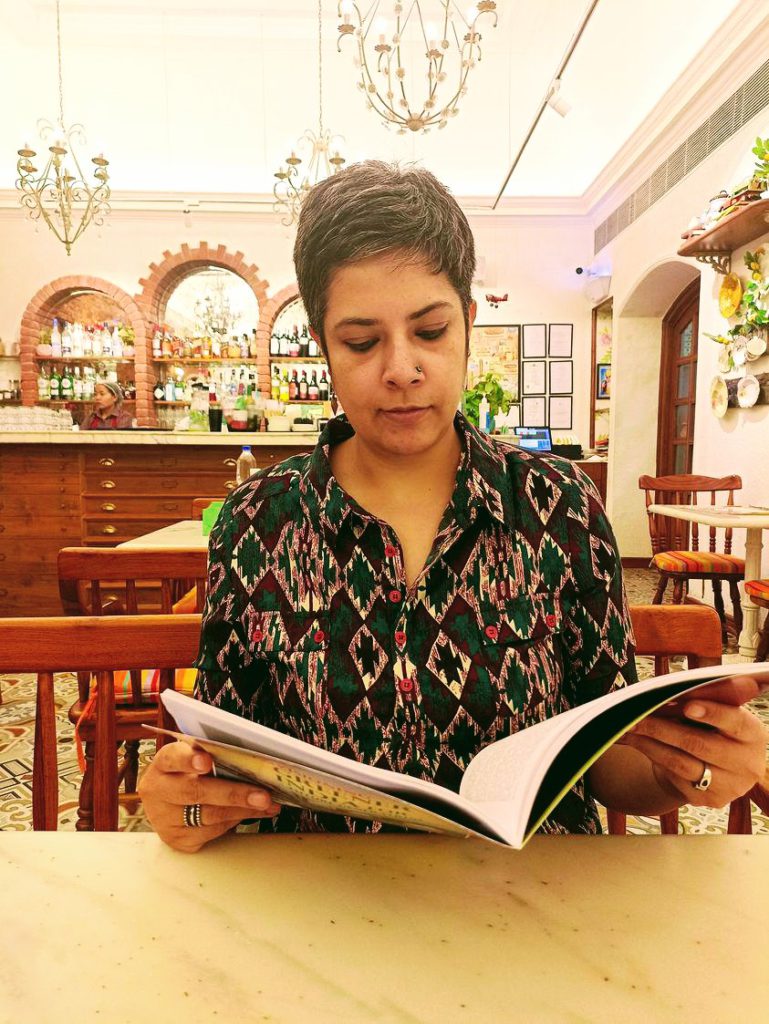How Deepa Agarwal’s Himalayan Roots Shaped Her Writing Journey
“My childhood was spent in an area of great natural beauty and vast open spaces.“
— Deepa Agarwal

Deepa Agarwal, renowned author of children’s books, historical fiction, and adaptations of Indian folklore, attributes much of her creative inspiration to her early life in Almora, a Himalayan town steeped in natural beauty. Her ability to weave compelling narratives has roots in a childhood filled with outdoor exploration, simple living, and a rich cultural heritage.
If you’re a writer wondering, “How does childhood influence writing?” or “How to write books inspired by personal experiences?”, Deepa’s journey offers valuable insights. Let’s explore her fascinating story and gain practical tips for crafting stories inspired by Indian folktales, mythology, and history.
Growing Up in the Himalayas: A Foundation for Storytelling
Deepa’s formative years in Almora were marked by simplicity, safety, and a deep connection with nature. She recalls:
“We spent a lot of time outdoors, exploring hillsides, playing with pets, and reading books. All of this had a profound effect on my imagination.”
These experiences became the backdrop for many of her stories. For example, her tale Fire from the Friendship Stories collection is based on a childhood memory of accidentally starting a forest fire. Similarly, A Caterpillar Called Matthew draws from her boarding school adventures, showcasing how personal anecdotes can transform into captivating narratives.
Here’s the rewritten SEO-optimized version of the article based on the analysis and suggestions:
How Deepa Agarwal’s Himalayan Roots Shaped Her Writing Journey

“My childhood was spent in an area of great natural beauty and vast open spaces.”
~Deepa Agarwal
Deepa Agarwal, renowned author of children’s books, historical fiction, and adaptations of Indian folklore, attributes much of her creative inspiration to her early life in Almora, a Himalayan town steeped in natural beauty. Her ability to weave compelling narratives has roots in a childhood filled with outdoor exploration, simple living, and a rich cultural heritage.
If you’re a writer wondering, “How does childhood influence writing?” or “How to write books inspired by personal experiences?”, Deepa’s journey offers valuable insights. Let’s explore her fascinating story and gain practical tips for crafting stories inspired by Indian folktales, mythology, and history.
Growing Up in the Himalayas: A Foundation for Storytelling
Deepa’s formative years in Almora were marked by simplicity, safety, and a deep connection with nature. She recalls:
“We spent a lot of time outdoors, exploring hillsides, playing with pets, and reading books. All of this had a profound effect on my imagination.”
These experiences became the backdrop for many of her stories. For example, her tale Fire from the Friendship Stories collection is based on a childhood memory of accidentally starting a forest fire. Similarly, A Caterpillar Called Matthew draws from her boarding school adventures, showcasing how personal anecdotes can transform into captivating narratives.
Keywords to Note: childhood influence on writing, Indian folktales, writing inspired by nature
The Books That Shaped Deepa Agarwal’s Early Writing
Reading was a cornerstone of Deepa’s childhood. Limited access to books meant cherishing every story she could find. Her early influences ranged from Grimm’s fairy tales and Enid Blyton mysteries to Hindi literature by Prem Chand and Tagore.
“Enid Blyton’s adventures shaped my early writing, but Shivani’s regional stories inspired me to set my tales in the hills.”
Deepa’s love for literature demonstrates the importance of diverse reading habits for aspiring writers. If you’re searching for “How to find inspiration for writing?” or “Books every aspiring writer should read,” her journey offers a roadmap for blending cultural heritage with universal themes.
Writing Across Genres: Lessons from Deepa Agarwal
Deepa Agarwal’s portfolio spans children’s books, historical fiction, and folktale adaptations. She credits her versatility to a combination of imagination, research, and emotional connection.
When asked about writing for different audiences, she shares:
“I relive my childhood memories to connect with younger readers, but I also draw from my children’s and grandchildren’s lives to reflect contemporary concerns.”
For historical fiction like Caravan to Tibet or The Teenage Diary of Nur Jehan, Deepa emphasizes the importance of research. From studying historical accounts to delving into cultural nuances, her approach showcases how meticulous preparation can bring authenticity to stories.
How to Adapt Indian Folklore for Modern Readers
Adapting traditional tales for today’s audience requires a careful balance of cultural authenticity and relatability. Deepa’s love for folktales stems from her childhood, where her mother introduced her to these timeless stories.
“Folktales connect us to our past and our cultural identity. When I retell them, I use contemporary narrative styles and flesh out underdeveloped plots to engage modern readers.”
Deepa’s work showcases how to bring Indian mythology and folklore into the modern age by emphasizing universal values, using relatable language, and crafting well-rounded plots. Writers exploring “How to modernize folklore?” or “How to write Indian mythology for kids?” can take inspiration from her approach.

Advice for Aspiring Writers: Deepa Agarwal’s Top Tips
Deepa emphasizes the importance of reading widely and analyzing storytelling techniques. For those asking, “How do I start writing children’s books?” or “What are the best tips for writing historical fiction?”, here’s her advice:
- Read Deeply: Explore diverse genres and analyze character development and plot structure.
- Research Thoroughly: For historical fiction or mythology, delve into primary and secondary sources to ensure authenticity.
- Adapt and Innovate: Retelling myths requires fresh perspectives. Identify unique angles to make your story stand out.
- Revise Diligently: Polish your work through multiple drafts to ensure clarity and engagement.
Books Recommended by Deepa Agarwal
If you’re looking for essential reads on Indian folklore and mythology, Deepa recommends:
- Folktales from India by A.K. Ramanujan
- Works by Devdutt Pattanaik for mythology enthusiasts
- Regional folktale collections by Children’s Book Trust
- Amar Chitra Katha comics for a visual approach to Indian myths
How The Sunflower Seeds Supports Aspiring Writers
Aspiring writers often face challenges in navigating the publishing world or refining their craft. At The Sunflower Seeds, we offer tailored guidance to help you bring your stories to life. From editing manuscripts to marketing books inspired by Indian mythology or folktales, our team ensures your work reaches the right audience.
If you dream of writing like Deepa Agarwal, let The Sunflower Seeds help you craft compelling narratives, publish your book, and connect with readers worldwide.
Conclusion: Carrying the Legacy of Indian Folklore
Deepa Agarwal’s writing journey is a testament to the power of childhood memories, cultural heritage, and a love for storytelling. By blending personal experiences with extensive research, she has created a body of work that resonates with readers across generations.
If you’re inspired by Deepa’s journey and wish to explore your own stories, start today. With the right guidance and resources, your tales of Indian mythology or heartfelt children’s stories could captivate readers around the globe.
Let The Sunflower Seeds be your partner in turning your creative vision into a published masterpiece.





